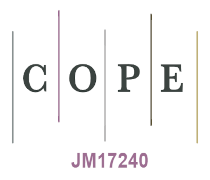Type and level of social support, coping styles and level of depression of Polish students at foreign universities
DOI:
https://doi.org/10.18778/1427-969X.16.05Keywords:
social support, coping styles, depression, acculturative stressAbstract
This paper is an attempt to answer the question on the role of the social support in the process of coping with stress within a group of Polish students in an acculturative stress situation. The research had two primary goals. The first goal was to show the differences between students of Polish nationality enrolled at foreign universities and students of Polish universities in terms of social support, coping with stress and the depression level. The second goal was to examine relations between those three variables. In order to select groups with high and low social support the scale of social support by Kmiecik-Baran has been used. In order to define styles of coping with stress, preferred by the cured drug addicts, the Polish version of The Coping Inventory for Stressful Situations has been used. Both groups responded to the Beck Depression Inventory (BDI), consisting of a self-evaluated scale of 21 items, each with four assertions corresponding to increasing levels of depressive symptoms. The obtained results indicate that students of Polish universities were characterized by a lower level of social support and they reported higher levels of depression than the control group of Polish students living abroad. The groups did not differ significantly with respect to the measures of coping styles. According to the results of the study, the stronger preference for the emotion-oriented coping style, the higher level of depression, which indicates that this coping style was ineffective in dealing with stressful life events in both groups of students. In addition, the level of received social support was negatively correlated (r = –0,589) with the task-oriented coping style in a group of students in Poland.
References
Blaney P.H. (1985), Stress and Depression In Adults: Critical Review, [w:] Stress and Coping, T.M. Field, P.M. McCabe, N. Schneiderman (red.), Lawrence Erlbaum Associates Publishers, New Jersey, 263–280.
Google Scholar
Boski P. (2005), Psychologia akulturacji, [w:] Kulturowe Ramy Zachowań Społecznych, P. Boski, Gdańskie Wydawnictwo Psychologiczne, Gdańsk, 505–563.
Google Scholar
Cohen S. (2004), Social Relationships and Health, „American Psychologist”, Nov., 676–684.
Google Scholar
DOI: https://doi.org/10.1037/0003-066X.59.8.676
Endler N.S., Parker J.D.A., & Butcher J.N. (2003), A factor analytic study of coping styles and the MMPI 2 content scales, „Journal of Clinical Psychology”, 59, 1049–1054.
Google Scholar
DOI: https://doi.org/10.1002/jclp.10197
Jaworowska-Obłój Z., Skuza B. (1986), Pojęcie wsparcia społecznego i jego funkcje w badaniach naukowych, „Przegląd Psychologiczny”, 3, 733–746.
Google Scholar
Kmiecik-Baran K. (1995), Skala wsparcia społecznego. Teoria i właściwości psychometryczne, „Przegląd Psychologiczny”, 38, 201–214.
Google Scholar
Knoll N., Schwarzer R. (2004), Prawdziwych przyjaciół... Wsparcie społeczne, stres, choroba i śmierć, [w:] Wsparcie społeczne, stres i zdrowie, H. Sęk, R. Cieślak (red.), Wydawnictwo Naukowe PWN, Warszawa.
Google Scholar
Kraśniewski A. (2006), Proces Boloński: dokąd zmierza europejskie szkolnictwo wyższe?, MENiS, Warszawa.
Google Scholar
Makowska H., Poprawa R. (1996), Radzenie sobie ze stresem, [w:] Elementy psychologii zdrowia, G. Dolińska-Zygmunt (red.), Wydawnictwo Uniwersytetu Wrocławskiego, Wrocław, 69–100.
Google Scholar
Piwoński J., Piwońska A., Głuszek J., Bielecki W., Pająk A., Kozakiewicz K., Wyrzykowski B., Rywik S. (2005), Ocena częstości występowania niskiego poziomu wsparcia społecznego oraz objawów depresji w populacji polskiej. Wyniki programu WOBASZ, „Kardiologia Polska”, 63, 6 (supl. 4).
Google Scholar
Poznaniak W. (2008), O różnych obliczach wsparcia emocjonalnego raz jeszcze, [w:] Zdrowie i choroba. Problemy diagnozy, teorii i praktyki, J.M. Brzeziński, L. Cierpiałkowska (red.),Gdańskie Wydawnictwo Psychologiczne, Gdańsk, 396–413.
Google Scholar
Pommersbach J. (1988), Wsparcie społeczne a choroba, „Przegląd Psychologiczny”, 31, 503–523.
Google Scholar
Schwarzer R., Knoll N. (2007), Functional roles of social support within the stress and coping process: A theoretical and empirical overview, „International Journal of Psychology”, 42, 4, 243–252
Google Scholar
DOI: https://doi.org/10.1080/00207590701396641
Strelau J., Jaworowska A., Wrześniewski K., Szczepaniak P. (2005), Kwestionariusz Radzenia Sobie w Sytuacjach Stresowych CISS, PTP, Warszawa.
Google Scholar
Titkow A. (1993), Choroba i zakłócenia w zachowaniu jako empiryczny wskaźnik porażek poniesionych w zderzeniu ze stresorem, [w:] A. Titkow, Stres i życie społeczne. Polskie doświadczenia, Państwowy Instytut Wydawniczy, Warszawa, 147–158.
Google Scholar
Wolfeil N. (2009), Student Mobility from New to Old Member States in the European Union – Changing Patterns after 1st of May 2004?, „CMR Working Papers”, 42/100.
Google Scholar
Zawadzki B., Popiel A., Pragłowska E. (2009), Charakterystyka psychometryczna polskiej adaptacji Kwestionariusza Depresji BDI-II Aarona Becka, „Psychologia–Etiologia–Genetyka”, 19, 71–95.
Google Scholar
Downloads
Published
How to Cite
Issue
Section
License

This work is licensed under a Creative Commons Attribution-NonCommercial-NoDerivatives 4.0 International License.








